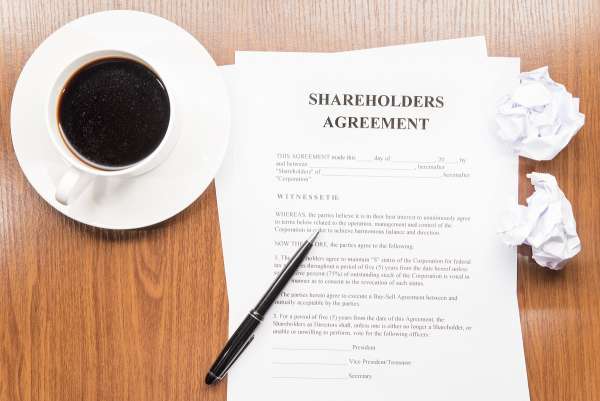Contact Our Manufacturing Team
Our experts are ready to assist with all aspects of manufacturing law. We are always happy to have an initial no-obligation chat to help guide you in the right direction. Please do not hesitate to contact us at:
This article comments on shareholders’ agreements and why they can be extremely important for private, owner-managed manufacturing companies.
Owner-managed companies usually have a smaller number of shareholders (each holding different amounts of shares and different classes of shares), and those shareholders are typically directors also.
Where tensions can and often do arise are between majority and minority shareholders, particularly where their interests and objectives for the business may not be aligned, may lead to allegations by a minority shareholder that a majority shareholder (or a group of shareholders comprising the majority) is abusing its dominant position, oppressing the minority shareholder and promoting its (or their) own interests to the detriment of the minority.
Accordingly, if a minority shareholder is unhappy about the way the company is being run and / or feels they are being excluded by their co-shareholders, what can they do? Unless they are a director and / or a de facto director (someone who assumes responsibility to act as a director although not appointed as such), they may have limited influence over the decisions made day to day. They may not pass ordinary resolutions (which usually require over 50% of the shareholding to pass) or at least not without the support of other shareholders; they will have very limited rights of access to financial information under the Companies Act 2006 (the Companies Act); and they may encounter difficulties selling their shares.
Shareholders in private companies may therefore want to ensure their rights are protected equally with their co-shareholders and take steps to achieve that objective. A shareholders’ agreement can help.
A shareholders’ agreement is an agreement between shareholders regulating the affairs of the company. They can take various forms including joint venture agreements, agreements modelled on partnership deeds and agreements protecting minority (or majority) shareholders.
As noted above, if there is no shareholders’ agreement, the potential for disputes may increase.
For example, manufacturing businesses are often set up by individuals who may be friends, work colleagues and / or family members. Each individual pools their resources, skills and expertise in partnership. If the business is then incorporated, the partners become shareholders and directors in the company; however, sometimes, because of the pre-existing mutual trust and confidence that exists between the partners, they can (and very often do) fail to consider protecting the interests of minority shareholders which can lead to disagreements in the future.
People can change. Personalities can clash. There are various outside pressures affecting manufacturers including rising energy costs and fluctuations in the price of raw materials and commodities, which cause pinch points for the business and management. These factors can cause disputes which could lead to litigation, which is expensive; takes up valuable management time; and is damaging to personal relationships and the business overall.
Therefore, if a manufacturing business is incorporating, a professionally drafted shareholders’ agreement (combined with bespoke articles of association) can help to avoid disagreements and resolve disputes.

Shareholders’ agreements can provide that:
The obvious advantage of a shareholders’ agreement is that it should spell out, in the clearest possible terms, how the business will function under the control of its shareholders, and how disputes may be resolved.
Other advantages of shareholders’ agreements include:
In summary, when incorporating a company with business partners (even if the partners are friends or family members) it is essential to have shared vision as to how the affairs of the company will be managed.
For the reasons discussed above, a shareholders’ agreement helps provide that clarity and may also provide the necessary framework to the parties should a dispute unfortunately arise at a later date.
Our experts are ready to assist with all aspects of manufacturing law. We are always happy to have an initial no-obligation chat to help guide you in the right direction. Please do not hesitate to contact us at: